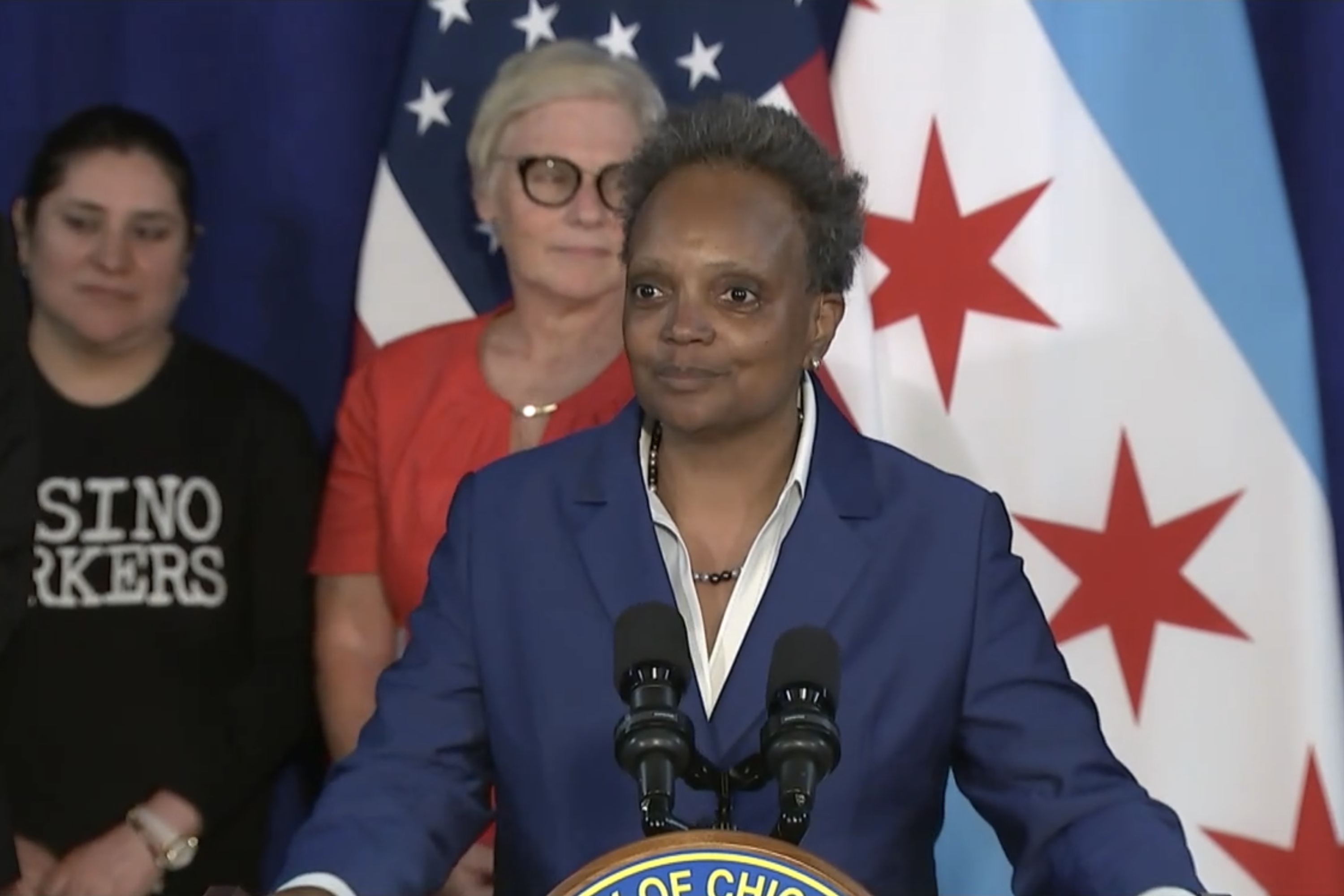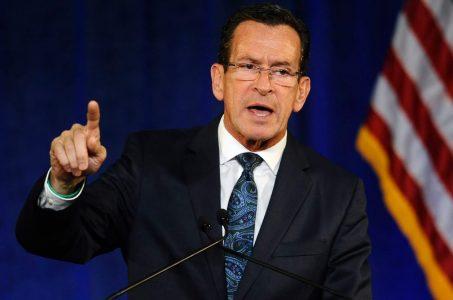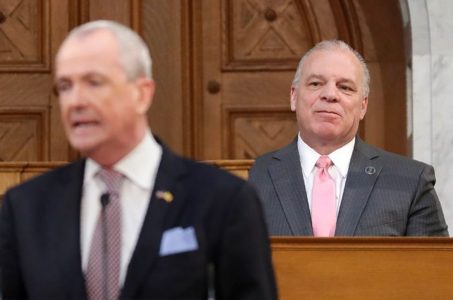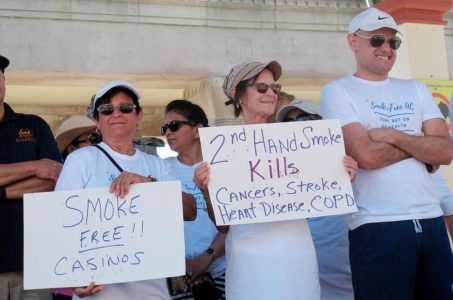Bally’s Gains Chicago City Council’s Full Support for $1.7B Casino Project
Posted on: May 26, 2022, 05:03h.
Last updated on: May 26, 2022, 11:02h.
As expected, the Chicago City Council voted overwhelmingly Wednesday to approve the city’s agreement with Bally’s Corp. It can now move forward with the Rhode Island-based company’s plans to build a $1.7 billion casino on the city’s Near North Side.

Thanks to the 41-7 vote, Bally’s will now go before the Illinois Gaming Board and seek a license to operate what would be the largest casino in the state. It’s expected to have 3,400 slot machines and 170 table games. The city will also begin work on rezoning the Chicago Tribune’s printing plant, the selected location for the permanent casino.
City leaders, as Mayor Lori Lightfoot has pointed out, have tried for 30 years to bring a casino to the Illinois metropolis. It took legislation the Illinois General Assembly passed in 2019 to finally open the door for that to happen, although lawmakers needed to amend the law a year later to make the tax rate more appealing to gaming firms.
Chicago released the solicitation for the casino proposal in April 2021. The city extended the initial filing deadline by more than two months to late October. Ultimately, five proposals were submitted. Two were by Bally’s and were essentially identical projects at different locations. Rush Street Gaming submitted two proposals with different development partners for each of its plans, and Hard Rock International made an offer as well.
One of the strongest selling points for Bally’s was that it did not have a casino already in the Chicago area. Lightfoot also said that the company was the only one to sign a labor accord with local unions, a key requirement for the deal in a city heavily influenced by organized labor.
The casino project is expected to create 3,000 construction jobs and 3,000 jobs within the casino.
Lightfoot: Bally’s to Build ‘World-Class’ Destination
Tax revenue from the casino will go toward pension funds for Chicago’s firefighters and police officers. After the permanent casino opens – that’s expected to happen in 2026 – city leaders expect the casino to cover about 9% of the city’s pension commitment. That would free up city funds for other uses and potentially avoid the need to raise property taxes.
Besides the gaming amenities, Bally’s plans a hotel with up to 500 rooms, a 3,000-seat theater, an outdoor music venue, and six dining establishments for the permanent site. Once approved by the IGB for licensure, Bally’s will work a $70 million temporary casino with 800 slot machines that could open as early as next year.
Once Bally’s and the city sign the host agreement, Bally’s will cut a $40 million check to the city. The city is planning to use that funding toward pension costs in the upcoming fiscal year budget, which is expected to have a shortfall of about $300 million.
In addition to the tax revenues generated from the casino, Bally’s will provide another $4 million annually to the city for as long as the agreement is in place.
But Lightfoot told reporters after Wednesday’s vote that the impact the casino will have on Chicago will go beyond the economic boost it will provide.
Besides creating a world-class entertainment venue for our world-class city, a casino signals to the world that our economy is on a strong path towards recovery, ready to develop new and lucrative projects,” the mayor said. “Additionally, it puts us further on the path that began when I became mayor. A path towards long-term fiscal stability for our city.”
While the casino is expected to help attract and retain tourists and conventiongoers, the casino is also expected to help keep more gambling dollars in the state of Illinois. Chicago CFO Jennie Huong Bennett has said that the state loses more than $330 million in gaming revenue to Indiana casinos annually. A Chicago casino would keep about $190 million of that in the state.
Shouting Match in Council Chambers
While Wednesday’s vote was essentially a formality – it was clear after Monday’s special committee vote the project had more than enough votes to pass – there still remained some tension between Lightfoot and aldermen on the Council regarding the casino project.
Some were upset that the Council’s special committee did not get a chance to go over the Hard Rock or Rush Street proposals. Others, including a few who voted yes, raised concerns about the expedited process to get to a vote on the Bally’s agreement.
But all that paled in comparison to the shouting match that occurred between Lightfoot and Alderman Byron Sigcho-Lopez. It started when Sigcho-Lopez criticized the process as benefiting Bally’s more than the city, and saying the Lightfoot administration was “more worried about campaign contributions” than serving the citizens.
That led Lightfoot, who as mayor presides over council meetings, to hammer her gavel repeatedly, tell the alderman he was out of order, and call him a liar.
“I will not sit here silently while you besmirch my reputation and the people that work for me from your pettiness of the things that you’re trying to do that expose this city to liability, sir,” Lightfoot shouted in response. “You are out of order. You can express your comments and your views, but you will not tear down the integrity of people who are working just as hard as you are. That is absolutely unacceptable.”
Related News Articles
Australia Considers Regulating Online Poker as Internet Gambling Ban Takes Effect
Connecticut Governor Balks at MGM Proposal for $675M Bridgeport Casino: ‘Impossible’
Most Popular
Mirage Las Vegas Demolition to Start Next Week, Atrium a Goner
Where All the Mirage Relics Will Go
Most Commented
-
Bally’s Facing Five Months of Daily Demolition for Chicago Casino
— June 18, 2024 — 12 Comments
















No comments yet